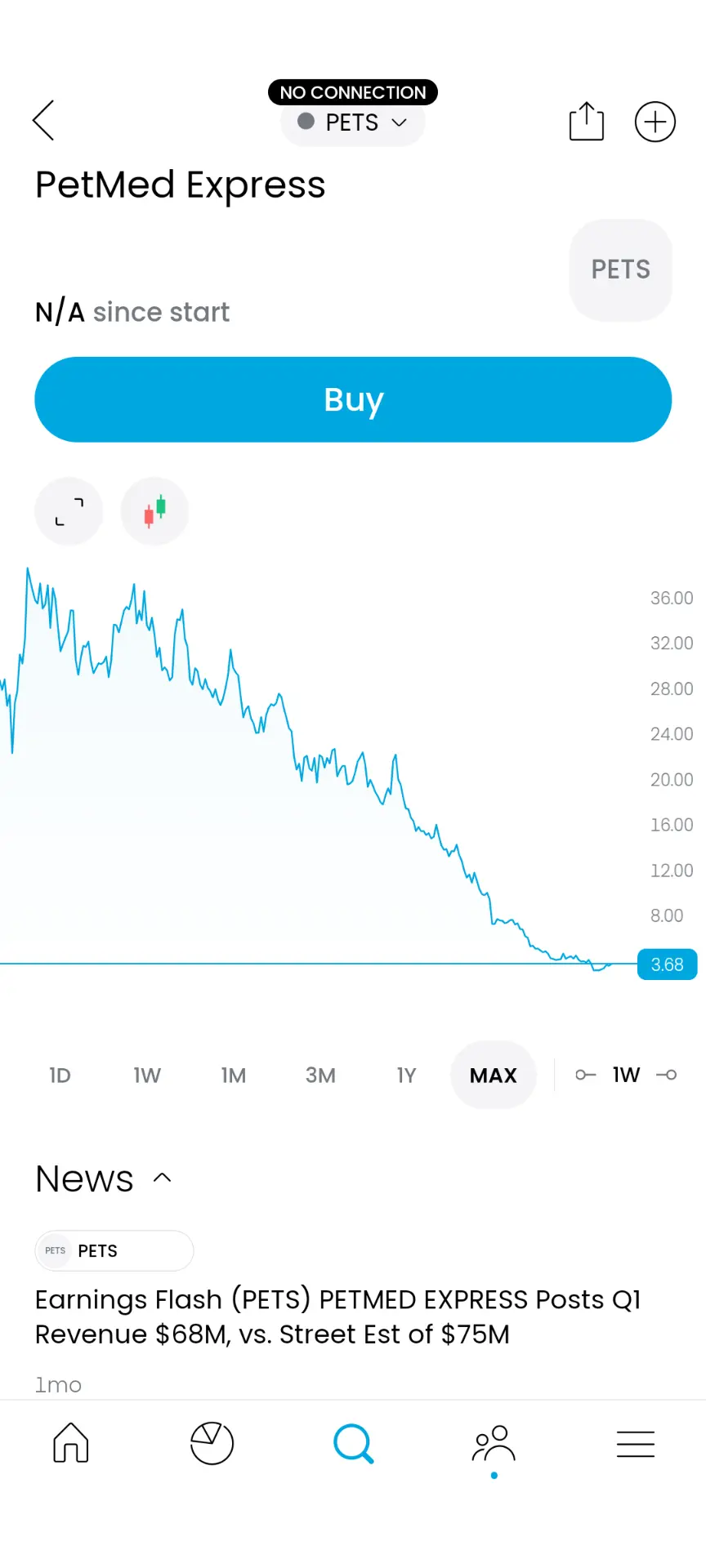Don’t disagree about stuffing it in VTI… But, be aware that things can go up and down, so don’t obsess over the value one you put it in. It’s long term so it should go up over long term, but they’re can be months sheets it goes down and even a year where it doesn’t do well
With zero information on your situation, it’s difficult to say. If you have debt, paying that down/off is generally priority one. If you are debt-free, then you have options. Your age, stability, goals, and other factors would generally dictate what type of action to take. Were it me (early 40s, very low interest rate home loan), I’d put it into an index fund where I’ve already got some investments. In my case, I’m investing for retirement in about 25-30 years (as if I’ll be able to do that, but one can hope).
If you don’t have an emergency fund, I would put some or all of it into something like a money market account. It won’t grow very much, but it’s safe and is quick and easy to withdraw when needed.
Otherwise depends on your age and situation, but an index fund (S&P 500) is almost always the right choice. It’s flexible, doesn’t usually lock you in, and will generally do very well in the mid-to-long term. If we hit a recession you might get stuck holding the shares for several months to a few years. The last thing you want to do is panic sell in that situation.
If you have any debt, paying that down is a very smart move, especially if the debt is charging more interest than your investment can earn. Future you will thank you.
I have my emergency fund, and no debt. If I were to lose this $10K, it wouldn’t impact my life. I’m comfortable with taking $10K out of my bank account and doing something with it but I don’t know how to go about that. I don’t know how to open an index fund or money market account.
I’m going to second (third, fourth, fifth) the Roth IRA recommendation. You can set it up with Schwab or whoever and can make recurring contributions too (set it and forget it) there are income limits so if you are really raking it in one year you can’t contribute that year but whatever you put in there is still (usually) going to grow in value. If you have an emergency situation and need the money you can withdraw contributions, not earnings, ahead of retirement, so it’s not lost to you, but working for you and much easier at tax time, no worries about how to report it.
Index fund, most definitely. And find one that has low administrative fees, I know that Vanguard has at least a few that are super low.
-
pay off high interest debt
-
top off your emergency fund so you don’t run into expensive short-on-money situations
-
take care of deferred maintenance on your car or house that might turn into an expensive repair
-
If you have an employer sponsored 401k, increase the contribution amount to get 10k more tax free into it before the end of the year and use the $10k cash in hand for expenses.
-
Open a roth IRA and contribute the maximum amount you can (which may vary based on your income)
VT, VTI, and SPY are good broad-market funds with good historical growth.
I used to not have any doubts about a Roth, but I’ve been considering that maybe it’s a little too much like giving the government a free loan. Do you know if there’s a thorough comparison anywhere between a traditional and Roth IRA that takes into consideration the opportunity cost of paying tax on the contributions?
Compound interest will far outweigh paying taxes now for a Roth. Especially if you also have a 401k, the taxes in retirement will be potentially large based on the growth of the fund over decades. A Roth makes it so you pay nominal taxes now for potential large tax free growth later.
The exception would be if you think your income will decrease in your later working years, in which case a traditional IRA could make more sense. That however is a unique case. Generally it’s better to take advantage of a Roth if you can for tax free gains later.
I understand how having a higher income and tax rate in retirement makes a Roth attractive. However, the comparisons I’ve seen don’t fully account for the opportunity cost of paying the taxes up front in the case of a Roth, since a traditional IRA lowers your taxable income by the amount you contribute. This tax break allows for a greater contribution. In other words, I think a fairer comparison would show a greater initial contribution for a traditional IRA.
The biggest question is, do you think your tax percentage will be higher now, or higher in the future? If you think your income might increase later (placing you in a higher tax bracket), or that the government might increase your tax burden later, then it’s better to pay taxes now.
That is a helpful comparison, but it assumes the same initial contribution. I think a better comparison would assume a higher initial contribution with a traditional IRA in order to account for the money being paid in taxes with Roth as being a missed opportunity. The money that went to taxes in the case of a Roth could have been additional investment in the the case of a traditional.
I like these points. Preventing a future expense by paying less now is always worth it, if you can afford it.
That depends, how far in the future, how big of an expense, how much interest can you earn, and what’s inflation looking like?
If it’s more than a couple thousand dollars more than a couple years out, you could possibly make useful money with a high interest bearing account provided inflation is expected to be less than about 2/3 of the interest rate of the account.
Time IS money.
Being poor is expensive.
It’s much more expensive to be poor now than it used to be!
Second vote for VTI.
1-4 are all taken care of. I need to learn more about a roth IRA and what an index fund is. I’m okay with letting $10K sit somewhere for 5-10 years, possibly longer like for retirement.
Read up on Roth IRAs - your future self will thank you! You can open an account anywhere you’d like (Vanguard, Fidelity, Charles Schwab, etc). One thing I’ll mention though: the annual limit is 7K for 2024 (8K if you’re 50+), and you have to have at least that much in income to contribute (i.e., if you only had 5K income for 2024, then that’s your limit).
So, for 10K you’ll have to invest in 2024 and 2025. You also have until tax day to make contributions for the prior year.
Don’t rule out a Roth if you only want to save for 5-10 years. You’re allowed to withdraw the principal (initial 10K) at any time for no penalty/cost, so long as it’s recorded properly with the IRS when you withdraw it.
-
Put it in an IRA so you cant touch it and buy high dividedend yeilding stocks that reinvest in more shares and let it sit for the next decade and pray that there is a radical social change in out society so we can save the Planet and Poor from Billionaires.
You can definitely touch an IRA. Had to empty mine since I’ve been unemployed.
What kind of work are you looking for?
I’m a software engineer but can’t even get a call back due to the fact that tons of us are unemployed right now. Many unemployed have more experience than I do.
The best part is that I can’t even get a job at a grocery store because I’m “overqualified” according to one store in my neighborhood.
Have you looked into drafting before?
I’m not sure what that means
High yield savings account at SoFi or Ally Bank will give you 4% right now.
Vanguard recently started offering a savings account with 4.15% APY (their ‘cash plus’ account).
If OP wants to park the money in a savings account for easier access than a mutual fund, that’s both a more reliable institution and a better rate.
$10,000 at 4% gives you $400 interest in one year.
Just about any decent dividend stock will outperform that. Look at PET for example. It is sitting at $3.65/share right now and offers a quarterly dividend of $0.30. That puts you at $1.20/share per year. 10k = 2739 shares = $3,286.80 dividend payout in one year.
Banks are the worst place to put investments. Money in bank accounts are only supposed to be there if you need it liquid, like an emergency fund or your checking account.
PET? What stock are you talking about?
PETS, sorry, don’t know why my phone cut off the ‘S’.
PETMED EXPRESS INC COM
I just checked the top 3 companies there and every share price is through the floor lol

Isn’t that the time you want to buy…?
Have you ever heard of the tbill?
Sure. It is still a lower rate than going into dividend stocks.
How much do you personally have invested in stocks like these?
Little under 30k in higher risk dividend. Bring in about 800 a month.
I have a mix of large cap, small cap growth stocks, then dividend high risk and low risk. Stock like this (I do not own PETS, I was just using it as an example) would be a high risk due to its price instability. But you mitigate that with stop loss orders.
I have a vanguard/roth for my longs (large cap growths and stable dividends with DRIP) and then use etrade for the small cap or high risk ones. I like their tax documents and easy interface.
People make arguments against dividend stocks, I simply call it a different strategy. Some years it beats out my growths, some years it is about on par. Depends on where I have it at the time and slightly more market dependant.
I have recently gotten into ex-date chasing. While it has increased the returns, it is more work.
Ive thought about doing that with my IRA, has the market negatively impacted your yields at all?
When it is easy bull markets, I go heavy on growth stocks. When the market is bear, I go heavy on dividends. Right now though there is a high beta turmoil, so I have a mix of both. My IRA is also set up as more od a “leave this alone” investment. My etrade account has my “fuck around and find out” money. I mention this because it is hard to directly compare the two. So far my dividends have strongly out performed the growth stocks, but only in the last 3 months or so has the gap widened. I credit it to 2 specific ones that are getting me 30%-ish yields with stable prices. They are also new etf’s, so the hedge money is still strong before the stripping gets to its prices. I mentioned in a post lower that that my little under 30k is netting me 800/month. Honestly it is paying a higher yield than renting out my condo is getting me.
ex-date chasing
Don’t they call that “stalking”?
Also yes. The more professional name is ‘dividend capture strategy’. More work, worth the pay off, do all you can to avoid commissions and fees.
Haha I was making a joke about the terminology but I probably should actually do some reading about the topic
Baby steps. Asking someone to go from nothing to investing in stocks is quite a leap.
No offense, but that sounds like a terrible idea.
Depends on your risk tolerance.
A 4% savings account is “safe” but might not keep up with inflation.
An index fund might be “good”, but the value can go down.
IIRC, >6% is the floor to keep up…
The average inflation rate for the last 20 years is under 3%
Oh? That’s actually uplifting news! 😅🖖🏽
Leave the country while you still can? 🤓🤘🏽
I kind of agree, moving from USA to for example Switzerland would be an improvement in every aspect of life.
But that might not be what they want.
It’s a big undertaking; learning the language and law, changing jobs, being okay with the fact you’ll rarely if ever see your family and friends…
The biggest problem for some people is no country wants them.
America seems to take just about anyone given you wait decades, but every other country worth moving to has strict income or professional requirements. I’m just a worthless factory schmuck so I’m stuck here :(
Or that, yes.
Even if you suddenly cash out a lucky 10 000 USD once, a lot of countries’ income requirements still filter you outGoing about it that way is like brute forcing a password. There are myriad other solutions, and necessity is the mother of invention.
I’m not sure what you mean by that, so just to clarify what I meant: A lot of countries require you to prove you have a sustainable income, so showing them you’ve earned 2500-3000 EUR every month for the past three years, and that you already have a contract waiting for you in their country, works. Showing you received 10 000 USD once when you can’t prove a sustainable income won’t do.
This makes it hard for people to move just because they got lucky with money once.I’m not saying it’s a good thing or not, just that this is the case.
Yes, this is known.
There is no universally good investment - it all depends on your priorities, risk appetite and timeframe.
Bees.
I do enjoy beekeeping vlogs but I’m more of a gardener.

Beads?
Beads?
Peas.
I’ll reply without knowing your situation fully. If you don’t have an emergency fund that would cover several months worth of expenses that is probably the single most impactful thing you can do with $10k. A few high yield savings account offer rates around 4%, some of them have strings attached, so read how it works carefully. Think of this as insurance against unforseen expenses that you might otherwise have to put on a card and consequently pay interest for. Pick a number and always make sure you keep that account at that number.
If you already have an emergency fund, you have lots of options. Personally, I am onboard with the folks recommending index funds. I have an ETF that tracks the DOW and it has outperformed most of my individual stocks significantly over time.
Most importantly, strangers on the internet are likely not financial advisors and may not even know what they are doing. Take everything with a grain of salt and if you talk to any investment companies make sure you understand the difference and overlap between a financial advisor and a fiduciary.
There is already some good advise, so I will add some of dubious value that might make sense for some people. Buy a better car (or get a motorcycle). I live in the US, so having private transportation is a necessity. I have a car, but mostly I share it with my parents. I do use a motorcycle as my main commute and it is cheaper than a car’s running costs. Just saying that $10k + sale of your current car could fetch you just about any other car. It is kind of hard to do a whole lot of life changing things with only $10k. Perhaps dental work if you need any.
Pay down your debts first.
Hmmm I see a distinct lack of CDs on here…
(Now I’m considering not renewing my 5% 9 month investment) Lol
I just looked up what a CD is. It seems easier to understand than some of the other suggestions that have been made. I do not understand what a roth ira is or if it’s right for me.
Roth grows tax-free and has more long term flexibility compared to traditional IRA. The tradeoff is that it doesn’t reduce your taxes in the year you contribute. It’s the better option for most.
Does a Roth mean I tell my employer to put the money into the account or do I put it in myself after I get paid?
The latter, for Roth IRA.A If you haven’t set one up before, it’s pretty straightforward.B
A: There is such a thing as a Roth 401(k) which if offered should definitely be your top priority up to employer contribution match.
B: Vanguard is often recommended for simplicity and low fees. You can pick your funds when contributing. Typical starting funds are VTI and VOO (or the mutual fund equivalents with slightly lower fees, VTSAX and VFIAX).
great this is helpful
An index that either tracks the top 500 companies or the total market. Look up a 3-fund portfolio if you want to go a little deeper.
Alternatively, max out an IRA if you haven’t already this year and are in a position where you won’t need that money until retirement.










